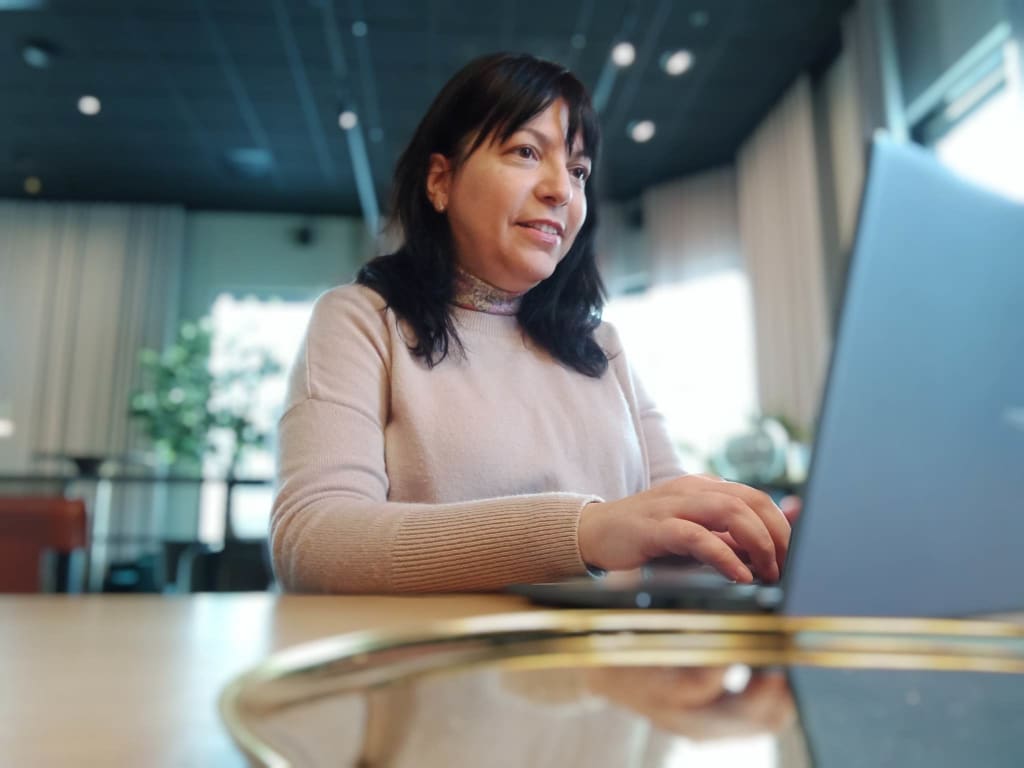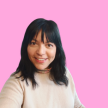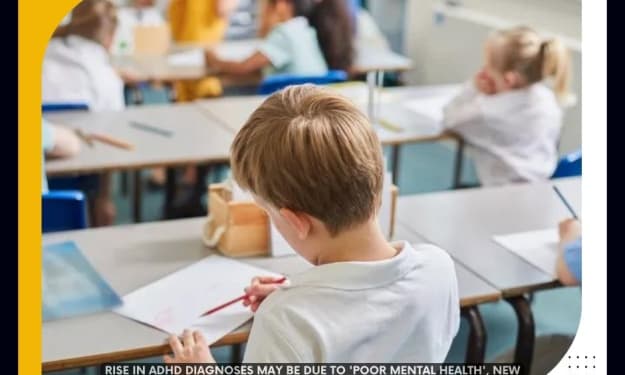Talking About My Childfree Life on BBC OS: Here's What Happened
Sharing my journey as a childfree woman on BBC World Services

It was Tuesday afternoon, I was at home, slightly bored, and I was on Twitter, just looking through my feed. Then I got a DM—I never get DMs—and it was from a journalist at BBC World Services. He said they were looking for people to come to their afternoon program (BBC OS) to talk about their choice of being childfree.
The reason he contacted me was that my Twitter account has the hashtag childfree in the bio/handle (@childfreeco). I don't tweet exclusively about being childfree by choice, but I do tweet about it a lot. Actually, I started this account in 2016, and it evolved into a childfree account through time. I have another with my "real identity" as a copywriter and podcast host (@a_picasso).
So, there I was, reading his DM, and I said... Yes! I had a quick prep call with the journalist and he explained the format of the interview: me and two other guests will talk about their choice to be childfree.
The catch: I would have to be ready in 10 minutes.
And I did it. You can listen to our conversation around 32 minutes in (link at the bottom of the article); it’s available until February 16th only. If you are reading this after that date, I’m afraid the recording won’t be available anymore.
So, I decided to write this article with my answers, some additional thoughts, and some things they edited out.
BBC: Ana, talk me through your life. What's your reason to be childfree?
Ana Paula: I think my reason is more philosophical - As a woman or as a human being you have different roles. I have my role as a professional, my role as wife, my role as friend and when I see women becoming mothers all these other roles go to the background and they only play one role as a mother for many years and I think they end up kind of losing themselves as individuals.
Being a human means having multiple sides to ourselves, and for me, that's what makes life exciting and fullfilling. I have my work persona that I show to clients and coworkers and I love being that person. But I couldn't handle being that person all the time. Same goes with my relationship with my partner, I love him but I also love my alone time. When I'm hanging with my friends, I get to show a different side of myself. I cherish each of these moments but being stuck in one role all the time would be draining to me. It's important to have different facets to keep our individuality and therefore, your happiness.
Of course, there are mothers who also have careers and different interests. And kudos to them. From my own experience talking to some mothers, it’s so hard to have that balance. And most women live in places / countries where it is extremely difficult to afford child care. So, it makes financial sense to stay home and let their partner work.
And it’s different for women. Even if you live in a very egalitarian society like Sweden (where I live now), most of the childcare is done by the mother.
Your role as a romantic partner suffers as well. I’m not a relationship expert, and I’m saying this based on what I’ve seen so far in my life. When a child comes, you fall into the role of co-parent, and that’s it. Not that I’m saying that childfree couples have crazy passionate relationships, but if you have a little person that is taking up all of your time—yours and your partner's - it’s very easy to fall into the one role.
You know that stereotype of people or friends getting divorced in their 40s and 50s? I’m sure there is some data to back it up. Coincidentally, it’s the time the kids move out (to go to college, etc.). And they turn around, and discover that the person they spent a good part of two decades with has become an almost total stranger, because the only role you both played was that of co-parent to each other. I’m not blaming anyone; it’s how it is.
Ana Paula: I don't share the view of the overpopulation is not because of that [I chose to be childfree]...coming from developing country I see a slightly different attitude towards motherhood, I'm 47 years old and I think people in Brazil [where I’m from] in my generation and younger they are only choosing to have one or two kids maximum and it’s something that didn't happen for instance in my mum's generation.
This is my favorite part, and here is why. I quoted (but it got left out) the late Swedish researcher Hans Rosling, who spent his whole life studying how the world and humans developed. I strongly recommend his last book, Factfulness. In the book, he shows with data, how many misconceptions about the world we have, from natural disasters and mortality rates to education levels and healthcare. And one of the subjects that made him famous was population growth. He gave many TED talks on this in a very educational yet entertaining way.
Rosling predicts that the world's population will peak at 11 billion people.Do you want to know why? Go and watch this amazing presentation, "Why the world population won’t exceed 11 billion"; it’s only 10 minutes long but it’s worth every minute.
Why do I believe him? From my own experience and being from a developing country and all. Economic growth, education, and accessibility to birth control go hand-in-hand.
BBC: In Films and books when there are representations of a perfect life it's usually accompanied by what would be a traditional perfect family but how do you respond when you see that “perfect” family?
Ana Paula: I'm very fascinated with the concept of family. I’ve been an expat [or immigrant if you will] for most of my adult life and you tend to rethink what family means. Because I'm away from my biological family and then your friends become your family. What does family mean? Is it a person you share your DNA with, or is it a [deep] connection we have with someone? …I think even though there's been media representation of different family arrangements I think people think of family as someone you share your DNA with. I think it's very hard to disconnect that idea [of biology] for most people but I'm I'm positive I'm positive that's changing but at a very slow pace.
Indeed, I’m totally fascinated with the concept of family, even more so now that I’m older. I'd love to write a whole article about what family means. To me, it’s so complex. I guess it’s because I don’t have "biological" children and it’s easier to see the complexity of families. I don’t want to go into the concept of pronatalism because it is so subtle and yet so pervasive. Pronatalist phrases like "you don’t know true love until you have your own child" or "there is nothing stronger than the bond between mother and child" are always floating around in films and books.
Which brings me to the second part of my answer about different family representations. If you live in a more Anglo-Saxon or Northern European culture, people are more open to different family arrangements. If you go south (and this includes Brazil and Latin America, where I’m from), this doesn’t happen in the mainstream media.
In my opinion, the "default" family will always be the biological family. It could be because in prehistoric times, we needed this biological connection to survive. I’ve listened to some podcasts about evolutionary biology, and they can explain this much better than me, for sure.
Now we don’t live in caves and hunt to survive. I'm not saying that biological families are unimportant or less than. We, as modern humans, have "outgrown" the concept of a biological family. At least, that’s what I’d like to think. If you were lucky enough to be born into a supportive and loving family, please cherish them. But what happens if you were born into a very problematic and unstable environment? It is up to you to find your own family, your chosen family.
And I'm glad I discovered mine.
Here is the link to the full interview (32 min in)
About the Creator
Ana Paula Picasso
#childfree by choice 🌞
#Brazilian by birth, #British by heart, #Swedish by chance






Comments
There are no comments for this story
Be the first to respond and start the conversation.